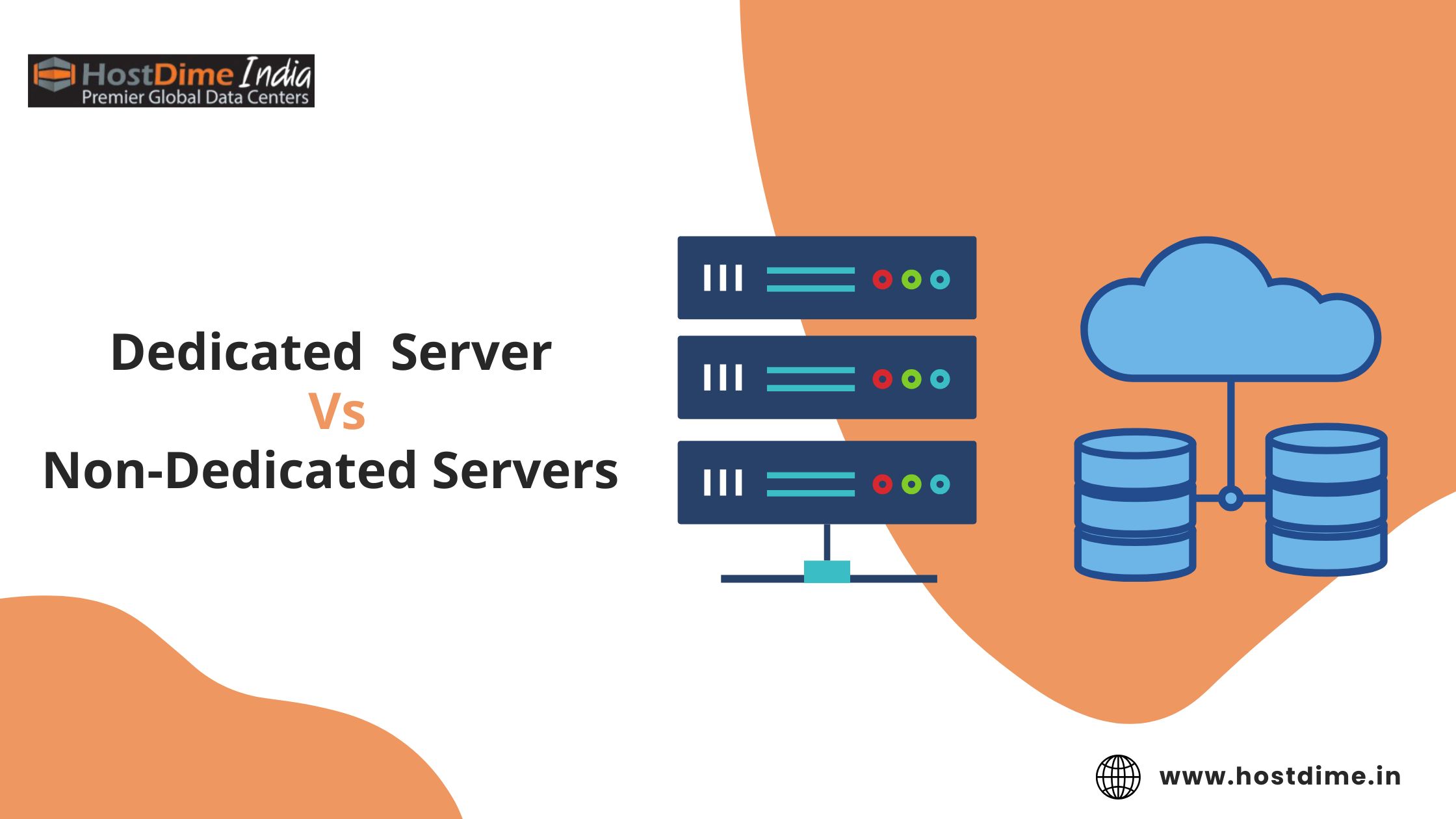Choosing the right hosting solution is among the most important decisions in the constantly changing online business world. It can greatly affect your website’s performance, security, and scalability. Dedicated and non-dedicated servers are two common web hosting services for anyone looking to set up a website or online business.
But how do you decide which is right for your business? Knowing the differences, benefits, and possible disadvantages can help you make a well-informed choice. In this article, we will examine dedicated servers and non-dedicated servers in-depth, comparing their advantages, use cases, and suitability so you can find the best one for your business.
What is a Dedicated Server?
A dedicated server is a physical server for one user or organization. It provides unparalleled performance and complete control over server configurations without shared resources, making it ideal for high-traffic situations, resource-extensive applications, and high-security needs.
Properties of a Dedicated Server for Your Application
- Dedicated Resources: The entire hardware stack (CPU, RAM, storage, etc.) is allocated for a single user.
- Customizability: Users own the operating system, software, and server.
- Performance: Perfect for businesses needing quick response times and little downtime.
When to Use a Dedicated Server?
- E-Commerce Sites: Processing thousands of transactions daily must be safe and performed without instances
- Gaming Platforms: Requiring low latency and high-speed processing for seamless gameplay.
- Enterprise: Hosting Complex Applications Or Databases With Resource-Intensive Needs
For example, a global online retailer like Amazon may pay for an additional dedicated server USA to maintain high speed during key sales days like Black Friday or Cyber Monday.
Advantages of a Dedicated Server
- Exclusive Resources: Dedicating hardware for only your applications.
- Customization: Option to configure the server to suit specific requirements, whether that is operating systems or specialized software.
- Improved Security: Due to restricted access and better isolation, users are less susceptible to breaches or vulnerabilities posed by other users.
- Scalability: It can manage high traffic levels and be scaled up to accommodate rising demands.
Cons of a Dedicated Server
- Expense: Dedicated server hosting is more expensive than shared servers, making them infeasible for SMBs.
- Technical Knowledge Required: Requires expertise in managing a dedicated server in terms of server configurations, security updates, etc.
- Overkill in Some Cases: A dedicated server may offer more resources than needed, resulting in wastage for small websites.
What is a Non-Dedicated Server?
A shared server, a non-dedicated server, hosts multiple websites operating on the same physical machine. This is a more cost-efficient option as resources like storage, CPU, and bandwidth are shared between everyone. Although it is an excellent option for small-scale enterprises or personal sites, the shared environment has some drawbacks related to performance and customization.
Important Properties of a Non-Dedicated Server
- Shared Resources: Multiple users can use the same hardware and network capacity resources.
- Cheap Price: Its expense is a recoverable option for new businesses and small websites.
- Basic Performance: Suitable for sites with low to moderate traffic.
Is a Non-Dedicated Server Right for You?
- Startups: new businesses operating with limited budgets and lower hosting requirements.
- Artists and Creatives Sites: Creative professionals showing off their work online
For instance, a freelance graphic designer’s portfolio site could run on a non-dedicated server to limit hosting costs while offering adequate site functionality.
Advantages of a Non-Dedicated Server
- Save money: Multitenant databases mean multiple users use a shared system.
- Ease of Use: Many providers provide preconfigured setups, which are accessible even to nontechnical users.
- Managed Maintenance: Hosting providers take care of updates and security patches.
- Resources Enough For Small Business: Good enough for websites with low traffic.
Disadvantages of a Non-Dedicated Server
- Performance: With a shared environment, loading can be slower, and performance suffers from high traffic.
- Increased security Issue: Because you share a server with other users, you run a greater risk of a data issue or malware attack.
- Limited Customization: Server configurations and software choices are restricted.
- Resource Contention: If another user spikes suddenly, your website’s performance will be affected.
Dedicated Servers vs Non-Dedicated Servers
| Feature | Dedicated Server | Non-Dedicated Server |
| Resource Allocation | Fully dedicated to one user | Shared among multiple users |
| Performance | High, consistent performance | Variable, affected by other users |
| Cost | Higher cost | Affordable for smaller budgets |
| Customization | Full control over configurations | Limited customization options |
| Security | Enhanced security and isolation | A shared environment increases the risks |
| Scalability | Easy to scale for growing demands | Limited scalability |
| Technical Expertise | Requires server management skills | Suitable for beginners |
| Use Case | Large businesses, high-traffic websites | Small businesses, personal websites |
| Reliability | Minimal downtime, high reliability | Prone to slowdowns during high-traffic |
Which One Is the Best Server for You?
The choice between a dedicated server and a non-dedicated server ultimately comes down to your business needs, budget, and technical skills.
When to Choose a Dedicated Server:
- You are running an application that is either resource-intensive or a high-traffic website.
- Your privacy and customization are our utmost priority here.
- You can afford to manage a dedicated environment and have enough tech expertise.
When to Choose a Non-Dedicated Server
- You have small hosting needs (small businesses, startups, individuals).
- But your website traffic is relatively low to moderate.
- You want an easy-to-use and affordable solution.
HostDime- Your Trusted Hosting Partner
For most businesses, there are two options for hosting: Shared hosting and managed hosting.
Why Choose HostDime?
- Data Center Locations Worldwide: Data centers are in highly strategic locations worldwide to ensure low latency and faster website performance.
- Flexible Solutions: Whether you need dedicated servers or shared hosting, HostDime offers plans that scale with your business.
- 24/7 Support: Experts are available 24/7 to help you with hosting-related questions.
- Security Ensured: Your data is never compromised with DDoS protection, firewalls, and updates.
- Dedicated Servers: HostDime dedicated server hosting in India offers unparalleled performance and customization for demanding applications.
Conclusion
Choosing between a dedicated server and a non-dedicated server is one of the most important steps on your way to hosting. Dedicated server hosting in India focuses on unmatched performance, customization, and security, while non-dedicated servers aim to deliver budget-friendly and user-friendly options for smaller websites.
Partnering with HostDime opens the door to an environmentally-friendly hosting provider that excels at both options. HostDime is the tool you require to succeed in the artificial world set, whether starting a small personal site or operating a large-scale business.
Choose the server solution perfect for your business today, and see it grow to new heights with HostDime powering you up behind the scenes.


